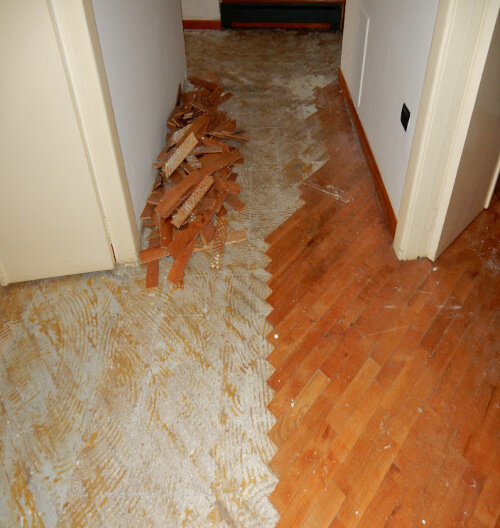What Is A Squatter And How Do They Affect Property Owners In Texas?
Squatters are individuals who unlawfully occupy and reside on a property without the owner’s permission. They can be a major concern for property owners in Texas, as they not only trespass but also pose potential safety and liability risks.
Squatters frequently take advantage of empty houses by breaking in or renting unlawfully from other people. Due to specific legal protections, it is challenging for property owners to remove squatters from Texas.
As such, it is crucial for property owners to understand the basics of what constitutes a squatter and how they can affect their properties in order to effectively defend against them.
Table Of Contents
1. Understanding The Basics: What Is A Squatter And How Do They Affect Property Owners In Texas?
2. Knowing Your Rights: Exploring The Concept Of Squatter’s Rights In Texas
4. Taking Action: How To Legally Evict A Squatter In Texas
5. Unpacking Adverse Possession: Examining The Link Between Squatter’s Rights And Adverse Possession
6. Can Police Remove Squatters In Texas?
7. What Qualifies As A Squatter In Texas?
Knowing Your Rights: Exploring The Concept Of Squatter’s Rights In Texas

When it comes to defending your property in Texas, it’s important to understand the concept of squatter’s rights. These are legal principles that give certain rights to individuals who have been residing on a property without the owner’s permission.
In Texas, squatters must occupy the property openly and continuously for a period of at least 10 years before they can claim any legal ownership. However, there are exceptions to this rule, such as if the squatter has obtained written consent from the owner or is paying rent for the property.
It’s crucial for homeowners to be aware of these laws and take necessary steps to protect their properties from potential squatting situations.
Navigating The Law: Understanding The Squatters Law In Texas
Protecting their property against squatters can be difficult for homeowners in Texas because of the many laws surrounding this issue. Squatters are those who trespass onto another person’s property in Texas without their consent or authorization.
As a homeowner, it is important to understand that squatters have certain rights under the law, making it crucial to navigate the legal system carefully. These rights include the ability to claim adverse possession if they have continuously occupied the property for a certain period of time and meet other requirements.
Therefore, in order to properly protect their property from prospective occupation, homeowners need to become knowledgeable about the unique squatter laws and regulations that apply in Texas.
Protecting Your Property: The Importance Of Knowing The Law Of Adverse Possession For Squatters In TX

Protecting your house from squatters in Texas is crucial, as these individuals can potentially gain legal ownership of your house through adverse possession. This law allows someone who has been living on a property without the owner’s permission for a certain period of time to claim ownership.
However, it is important for homeowners to know that there are specific requirements that must be met for adverse possession to occur. These include openly occupying the property, paying property taxes, and continuously using the land as their own.
By understanding the law of adverse possession in Texas, homeowners can take proper precautions to prevent squatters from gaining legal rights to their property. This may include regularly checking on their vacant properties and taking steps to remove any unauthorized occupants before they meet the necessary criteria for adverse possession.
Proactive Measures: Tips On How To Prevent Squatters From Taking Over Your Property
The risk of squatters occupying a property is one of the main worries for homeowners in Texas. Not only can this result in a large financial loss, but the legal process to get rid of them can also be drawn out and tedious.
As such, it is important for property owners to take proactive measures to prevent squatters from even entering their property. One effective strategy is to secure all entry points, including windows and doors, with sturdy locks and security systems.
It is also advisable to regularly check on the property and make it appear occupied by maintaining the yard and keeping lights on at night. Additionally, obtaining proper insurance coverage and staying up-to-date on local laws and regulations can help protect against potential squatting situations.
Texas homeowners can better protect their property against squatters by taking preventative measures and putting these suggestions into practice.
Taking Action: How To Legally Evict A Squatter In Texas

It’s critical for Texas homeowners to be aware of the possibility of squatters trespassing on their land. Homeowners may experience damage and legal issues as a result of these unwelcome tenants.
Fortunately, there are steps that can be taken to legally evict a squatter from your house. The first step is to gather evidence of the squatter’s presence, such as utility bills or witness statements.
Next, you must serve the squatter with a written notice to vacate the property. If they do not leave within the specified time frame, you can then file an eviction lawsuit in court.
It is crucial to follow all legal procedures and obtain a court order for eviction before attempting to physically remove the squatter from your property. With careful planning and adherence to Texas laws, homeowners can successfully defend their property from squatters.
Identifying Squatters: Who Are They And What Motivates Them?
It’s critical for Texas property owners to be aware of the danger posed by squatters as well as their possible reasons for doing so. People who occupy a property without authorization or legal justification are known as squatters.
They can range from homeless individuals seeking shelter to organized groups looking for properties to take over for financial gain. In recent years, squatting activity has increased due to the rise in housing costs and the growing number of vacant properties.
In addition, squatters may be driven by a need for a sense of belonging or a desire to protest perceived injustices politically. Property owners need to understand the many sorts of squatters and their reasons in order to properly protect their property from prospective occupation.
Unpacking Adverse Possession: Examining The Link Between Squatter’s Rights And Adverse Possession

Adverse possession is a legal concept that allows a person to gain ownership of someone else’s property by occupying it for a certain period of time. In Texas, this time period is typically 10 years.
On the other hand, squatters can try to use adverse possession rules to expedite their claim to someone’s property. For homeowners, this can be very concerning since, if they are not careful in protecting their property, squatters may wind up taking control of their homes.
Texas homeowners should be aware of the connection between adverse possession and squatter’s rights and take precautions to keep their homes safe from possible squatting situations.
State-specific Laws: An In-depth Look At Texas Squatters Rights
In the state of Texas, squatters rights are a complex and often misunderstood topic. While the general principle of adverse possession, or gaining legal ownership of a property by occupying it for a certain period of time, applies in Texas as it does in other states, there are also specific laws and regulations that must be considered when dealing with squatters.
For example, in order to assert adverse possession under Texas law, squatters need to fulfill specific requirements, like paying taxes on the property and occupying it openly for a minimum of ten years. In order to evict squatters from their premises, landlords must also adhere to certain rights and processes.
Familiarizing oneself with these state-specific laws is crucial for effectively defending one’s property against squatters in Texas.
Claiming Ownership: The Process Of Acquiring Adverse Possession/squatters Rights In Texas
In Texas, claiming ownership of a property through adverse possession or squatter’s rights can be a complex and lengthy process. Adverse possession refers to the legal concept of acquiring ownership of a property by openly using it for a certain period of time without the owner’s permission.
In order to claim adverse possession in Texas, the individual must prove that they have continuously occupied the property for at least 10 years, paid taxes on the property, and had no permission from the owner. Similarly, squatters rights allow someone who has been living on a property for an extended period of time to potentially gain ownership if certain requirements are met.
These include paying taxes on the property and using it without authorization for at least 30 years. In order to legally assert ownership of a property, adverse occupation, and squatter rights in Texas necessitate strict adherence to particular requirements established by law.
How Can We Protect Against Squatters In TX?
There are a few important tactics that homeowners in Texas can use to keep squatters out of their property. The most crucial thing to remember is to be proactive and take precautions, such as locking up any entrance points and putting up clearly marked “no trespassing” signs.
Additionally, regularly checking on the property and promptly addressing any signs of squatting can deter potential squatters. It’s also crucial to understand the legal rights and procedures for removing squatters in Texas, as well as having a solid lease agreement in place for tenants.
Being vigilant and knowledgeable about these strategies can greatly reduce the risk of falling victim to squatters in Texas.
Can Police Remove Squatters In Texas?

Property owners in Texas need to guard their properties carefully from squatters. Property owners may face significant difficulties as a result of these unwelcome tenants, including expensive legal disputes and property damage.
However, many homeowners are left wondering – can police remove squatters in Texas? The answer is yes, but it requires strategic planning and proper documentation. In most cases, police will not take action unless the homeowner has a court order or proof of ownership.
It’s crucial for homeowners to have all necessary paperwork in order and to work closely with law enforcement to ensure a swift and successful removal of squatters from their property.
Can You Forcibly Remove A Squatter In Texas?
In Texas, dealing with squatters on your property can be a daunting and frustrating task. However, it is important to know that as a property owner, you do have rights and options when it comes to defending your property from squatters.
One of the most common questions asked is whether or not you can forcibly remove a squatter in Texas. The answer is yes, but only through legal means.
When evicting a squatter, it is imperative to adhere to the correct protocols and take all required safety measures to prevent any possible legal fallout. You are able to effectively defend your home against squatters and recover your property if you have the appropriate tactics and knowledge of Texas laws.
What Qualifies As A Squatter In Texas?
In the state of Texas, a squatter is defined as someone who occupies a property without the legal right or permission to do so.
This can include those who have overstayed their welcome while visiting, trespassed onto the property, or even former tenants who are refusing to vacate after their lease has expired.
Squatters typically take advantage of vacant or abandoned homes and properties and may even attempt to claim ownership through adverse possession laws.
It is important for homeowners to be aware of the signs of squatting and take preventative measures to protect their property from potential squatters.
| SQUATTERS’ RIGHTS | SQUATTER’S RIGHTS | NOTORIOUS POSSESSION | EXCLUSIVE POSSESSION | EVICTED | PROPERTY OWNERSHIP |
| TENANCY | TRESPASSERS | TRESPASSER | SHERIFF | REAL ESTATE | |
| LEASES | ATTORNEY | REAL ESTATE INVESTING | PROPERTY MANAGEMENT | MANAGEMENT | LANDOWNER |
| JUDGMENT | GOOD FAITH | DEED | CRIMINAL OFFENSE | ACRES | AN ADVERSE POSSESSION |
| ADVERSE POSSESSION CLAIM | AN ADVERSE POSSESSION CLAIM | IN TEXAS A SQUATTER | MAKE AN ADVERSE POSSESSION |
Get A Cash Offer For Your Texas Property Today!
Sell your property 75% faster than with a real estate agent! We buy houses in Texas in 30 days or less! No Realtor Fess! No Repairs! No Hassles!


